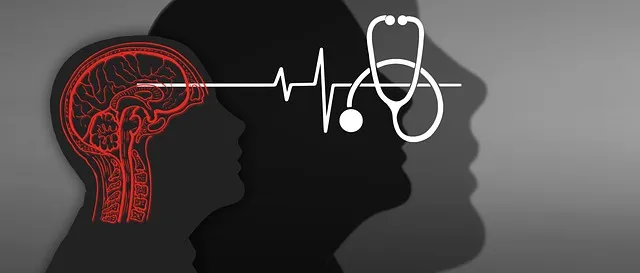In today's digital era, app-based mental wellness tools have gained immense popularity due to their accessibility and personalized support. Kaiser's services in Lakewood showcase how high-quality therapy can reach a wider audience through virtual care, addressing the growing demand for on-the-go mental health solutions. These apps offer mood tracking, mindfulness exercises, crisis guidance, and peer support, catering to diverse needs. While effective, their success depends on factors like therapist training and privacy measures, especially when dealing with complex cases. The market's rapid growth is driven by increased awareness of mental health issues, with AI, VR, and AR enhancing therapeutic experiences. "Does Kaiser have good therapists in Lakewood?" remains a key consideration as digital therapy expands its reach to remote areas.
In today’s digital age, mental wellness app development is revolutionizing access to therapy. With a growing need for accessible care, applications offer personalized support for various mental health challenges. This article explores the key components of effective therapy apps and analyzes Kaiser’s approach to virtual care in Lakewood, examining its impact on local communities. We also delve into market trends, providing insights into the future of mental wellness technology and answering the question: does Kaiser have good therapists in Lakewood?
- Understanding Mental Health App Development: A Growing Need
- Key Features and Components of Effective Therapy Apps
- Kaiser's Approach to Virtual Care: Does it Meet the Mark in Lakewood?
- Market Analysis and Future Trends in Mental Wellness Technology
Understanding Mental Health App Development: A Growing Need

In today’s fast-paced world, mental wellness app development has emerged as a crucial need. With increasing awareness about the importance of psychological health, more individuals are seeking accessible and convenient ways to support their emotional well-being. Apps designed for this purpose offer a range of features like tracking mood, practicing mindfulness, and providing crisis intervention guidance—all tailored to help users cultivate positive thinking and emotional regulation skills.
One notable example is Kaiser’s presence in Lakewood, known for its high-quality therapists and comprehensive mental health services. This demonstrates the growing demand for such applications that can bridge the gap between traditional therapy and on-the-go support. As the need for accessible mental wellness tools continues to grow, app development plays a pivotal role in fostering better emotional resilience and overall mental health.
Key Features and Components of Effective Therapy Apps

Effective therapy apps are designed with a blend of features that cater to diverse mental wellness needs. Key components include personalized treatment plans tailored to individual user profiles, allowing for adaptive and responsive support. Interactive tools such as mood trackers, meditation guides, and mindfulness exercises empower users to actively engage in their healing process.
Additionally, these apps often incorporate Community Outreach Program implementations, fostering connections between users through peer support groups. Conflict Resolution Techniques are also integrated, equipping users with valuable skills to navigate challenging situations. Regular check-ins and progress assessments help maintain user engagement while ensuring continuous improvement in mental wellness, making them a reliable resource for anyone seeking support, including those who wonder if Kaiser has good therapists in Lakewood.
Kaiser's Approach to Virtual Care: Does it Meet the Mark in Lakewood?

Kaiser’s approach to virtual care aims to bring mental health services directly to patients, eliminating barriers like geographical constraints and long waiting times. This strategy, particularly relevant in areas like Lakewood where access to mental health resources might be limited, promises a more inclusive and accessible care model. With video conferencing tools and digital platforms, Kaiser therapists can now reach a wider audience, including those who may not have otherwise sought help due to cost, convenience, or stigma.
However, the effectiveness of this approach depends on several factors. Does Kaiser provide adequately trained and qualified therapists capable of forming strong therapeutic alliances virtually? How do they ensure patient privacy and confidentiality in an online setting? Moreover, while virtual care is a step towards demystifying mental health services, it’s crucial to consider whether it can fully replicate the benefits of in-person sessions for complex cases or individuals who heavily rely on nonverbal cues. The success of Kaiser’s virtual care initiative hinges on integrating best practices in digital therapy while incorporating elements from Stress Management Workshops, Resilience Building programs, and Mental Health Education to truly meet the mental wellness needs of its Lakewood community.
Market Analysis and Future Trends in Mental Wellness Technology

The mental wellness app market is booming, driven by a growing awareness and acceptance of mental health issues. According to recent studies, this sector is expected to reach billions in value over the next few years, with consumers increasingly seeking digital solutions for anxiety relief, inner strength development, and depression prevention. Apps that leverage innovative technologies like AI and mindfulness practices are gaining popularity, particularly among younger demographics.
One notable trend is the integration of virtual reality (VR) and augmented reality (AR) to create immersive therapeutic experiences. Additionally, there’s a growing emphasis on personalized care, with apps offering tailored routines and resources based on user needs. The demand for accessible mental health services is also driving development, with many platforms now providing services in remote areas, including places like Lakewood where local resources might be limited but online support is readily available. This shift towards digital therapy has the potential to improve mental wellness outcomes by making care more convenient and affordable, especially for those who may not have easy access to traditional therapists, such as those asked “does Kaiser have good therapists Lakewood?”
Mental wellness apps are revolutionizing access to therapy, especially with organizations like Kaiser adopting virtual care models. The article has explored the growing need for these apps, key features that make them effective, and market trends. While Kaiser’s approach in Lakewood shows promise, the quality of therapists remains a critical factor—one that SEO rankings alone cannot guarantee. As the mental wellness tech landscape evolves, ensuring access to skilled professionals will be paramount for these apps’ long-term success.






